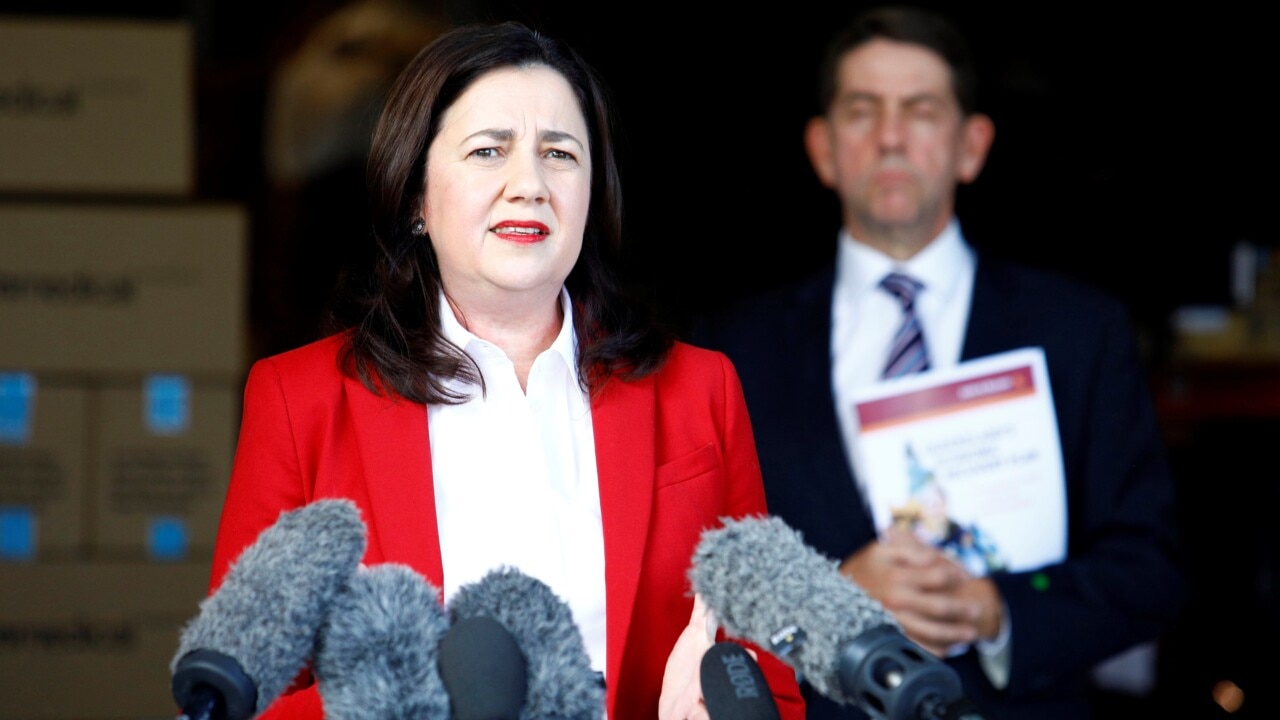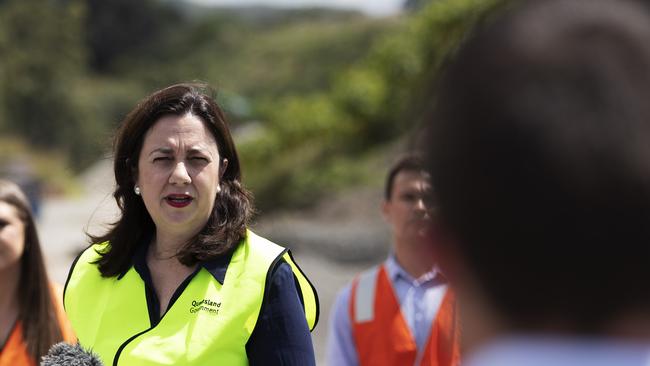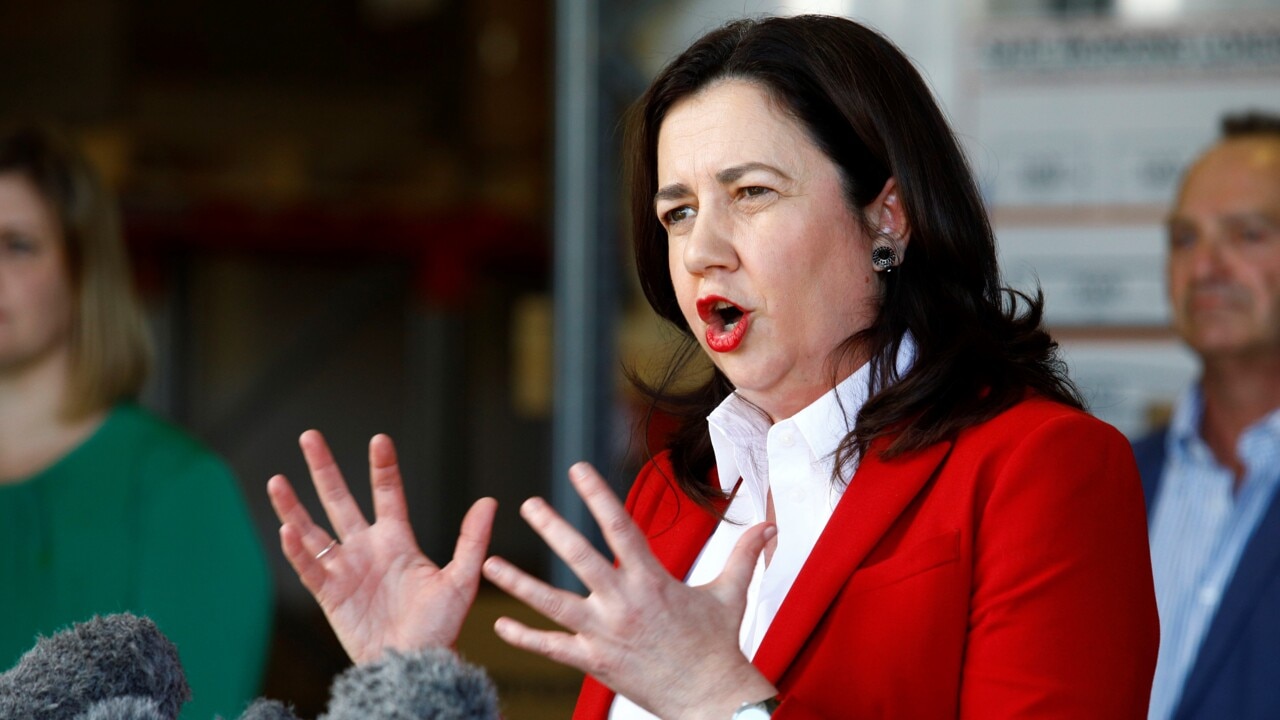How Palaszczuk Government is allowing unelected mercenaries to influence decision making
Lobbyists – they are the unelected mercenaries cruising the corridors of power, whispering in the ears of our lawmakers. They are influencing decisions in secret and a decree by the Palaszczuk government that lobbying regulations are already transparent enough is absolute rubbish, writes Mike O’Connor.

Opinion
Don't miss out on the headlines from Opinion. Followed categories will be added to My News.
AS the ranks of the unemployed swell, those contemplating a career change might well consider setting up shop as a lobbyist.
What does a lobbyist do and how do you become one? Becoming one is the easy part. All you do is stand on a street corner and declare in a very loud voice “I am a lobbyist!” and then stand back and wait for the money to roll in.
Sound too easy? Well there is one teensy catch and it has to do with what a lobbyist actually does.
Our leaders are so unpopular it’s time to dump state governments
Opinion: Maybe the Premier should just consult the public
Taxpayers spend another $50k+ on PR for COVID-19 response

Here’s how it works. Let’s say you want to make a lot of money and no matter how many Lotto tickets you buy, that holiday home on Hamilton Island and 50m boat remain a distant dream.
The solution is to go into any business that has dealings with government and then hire a lobbyist.
The lobbyist says “How can I help?” You explain that you need a slice of land rezoned so that you can sell it at a massive profit or that you need a nice fat government contract.
“No worries,” says the lobbyist. How, you might well ask, can this person influence the conduct of government.
This is the tricky bit for all those aspiring lobbyists for as my dear old Dad was wont to say: “It’s not what you know, son. It’s who you know.”
The lobbyist, then, knows people in government or knows people who know people who can influence the decision-making process.
You might well think, if you are particularly naive or simple minded, that if you have a good idea then all you would have to do is make an appointment to see your local member of parliament and put your case.
You pay them, after all, to represent you and look after your interests. Surely, in a democracy such as ours where governments trumpet the transparency of their dealings and declare, with hand on heart, that they are champions of fair and open dealing, that lobbyists would struggle to make a living.
Queensland, you might also reason, has more public servants per head of population than any other state in the nation. There are hundreds of thousands of them with a large proportion of their number earning extremely generous salaries, all charged with serving the government and providing it with frank and fearless advice in how best to serve you and me.
So where does the lobbyist fit in? They don’t so much fit in as slide in. What they peddle, well below the radar, is influence.

They are connected. They might have worked in government or for government or done time in a minister’s office. They can get past the minders and get to the people who can make things happen.
But surely there is something intrinsically immoral about this. Decision making shouldn’t be influenced by unelected mercenaries cruising the corridors of power, slipping in and out of ministerial offices and whispering in the shell-like ears of our lawmakers.
You would be right in thinking this, so why does the list of lobbyists on the state government’s lobbyist register grow longer by the day?
Someone, obviously, is doing very nicely. If they weren’t effective in getting things done for their clients then these clients wouldn’t pay them and they would cease to exist but instead, the prosper.
KPMG was paid $275,000 by the Palaszczuk government for advice on creating an economic roadmap. One of its partners is former Labor MP and adviser Mike Kaiser. What was the army of senior public servants employed by the Treasury Department doing? Sleeping?
The Premier’s former government strategy adviser, Evan Moorhead, and his lobbying firm Anacta Strategies has clients he dealt with when working with Ms Palaszczuk, many of them chasing government contracts.
Hawker Britton, a “government relations” company, lists Elliot Stein as a director. Mr Stein, its website says, has a network which “spans the breadth and depth of the Labor Party in Queensland and Canberra.”
There’s nothing illegal about this but it would seem to me that there is no valid argument to support the existence of lobbyists.
An independent review found that the government should tighten lobbying laws, citing concerns that attempts by lobbyists to influence government decisions were occurring in secret. The Palaszczuk government, however, decreed that “current lobbying regulations achieve the intent of ensuring transparency regarding parties seeking to influence government officials”.
That, I would contend, is absolute rubbish.
Originally published as How Palaszczuk Government is allowing unelected mercenaries to influence decision making
